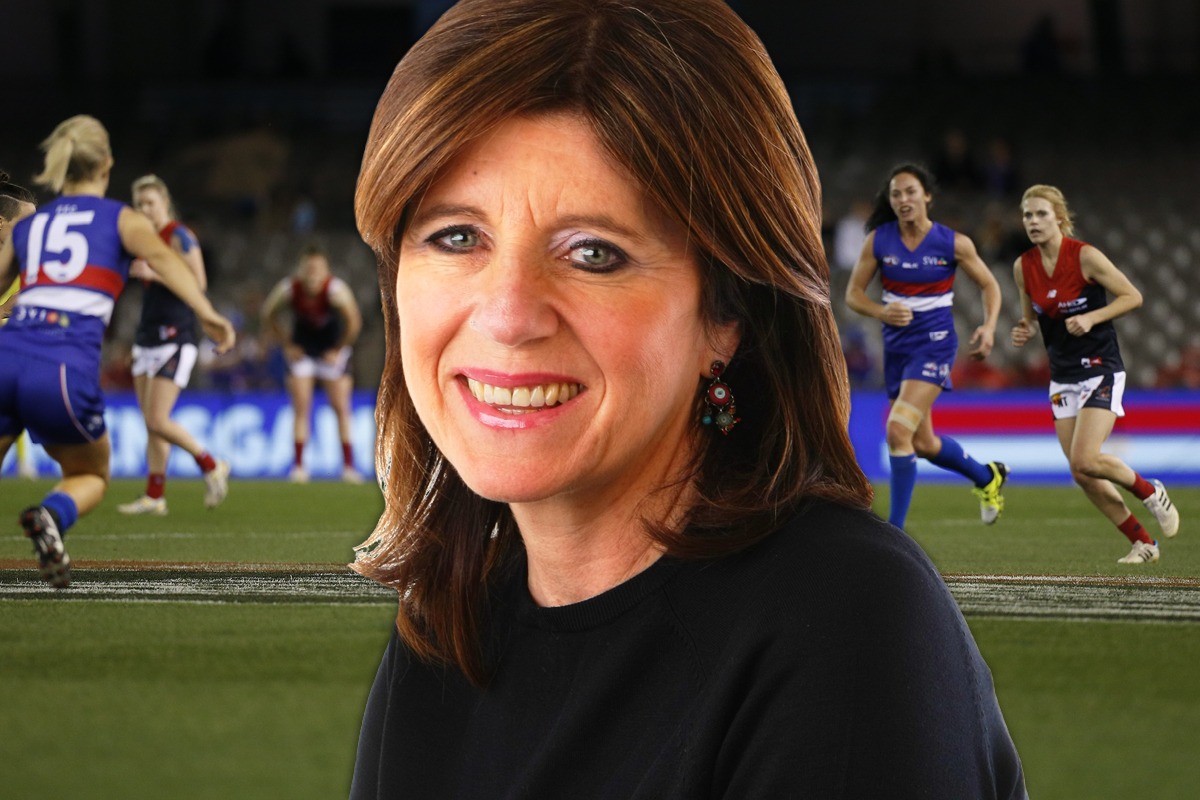Celebrated journalist and high profile media personality Caroline Wilson says, “Sometimes it’s an asset not being part of the boy’s club.”
Last week I ventured out on a bleak, cold Melbourne night to Deakin Edge at Federation Square to hear Wilson talk about Tackling the Sport of Men. Unsurprisingly, the auditorium was packed. In light of recent comments from those water challenge incident commentators, Collingwood FC President Eddie McGuire, his Triple M co-hosts James Brayshaw and Danny Frawley, and Footy Show presenter Sam Newman, Wilson’s appearance at the David Parkin Oration for Sport and Social Change was highly anticipated…the event was booked out!
Hearing Wilson recall the old days of the AFL in the 1980s (then known as the VFL) when she was the first woman to cover footy full time as a young reporter (now almost 35 years ago), reminded me of my time as a player. Wilson describes the environment at the time as “a bastion of masculinity” – a sport for men, run by men, reported on by men, where what happened on the field stayed on the field. Sounds about right.
Speaking about her career as a sports journalist, Wilson noted she’d covered athletics, golf, even three Olympics, but was unaware her appointment by a maverick editor at The Herald would be controversial. It’s one that paid off, which would see her become Chief Football Writer at The Age, as well as many other newspaper, TV, radio and current affairs gigs and recognition though multiple Walkley Awards.
If sending a young female reporter to cover the footy was, in Wilson’s words, a “social experiment”, she certainly challenged it. Undeterred by being marched out of the players’ change rooms, being mistaken for a waitress back of house or seated with footballer’s wives at events, Wilson not only wrote about the game, but had a hand in changing attitudes. She says she learned more from the women in football who gave her the best stories, sharing their insights and analysis when none of the men were listening.
Wilson has paved the way for other women in the sports media and can now cite many more female colleagues reporting the game: Sam Lane, Chloe Saltau, Emma Quayle and Linda Pearce. She’s seen a slow changing of the guard over her time in football, culminating in the advent of the AFL Women’s League, to premiere next year. Wilson spruiked a genuine possibility that the next AFL Chair could be a woman. In a global context, she highlighted opportunities for women in critical leadership positions – Theresa May post Brexit and I’d wager Clinton over Trump.
As David Parkin reminded us, sport has a unique ability to cross barriers, influence communities and be a positive agent for change. Over the course of its evolution from a part-time localised sporting competition to a national league of full-time elite athletes, the AFL has also helped increase awareness and change attitudes on a range of social issues, such as violence against women, mental illness, same-sex marriage and diversity.
The business landscape in Australia has similarly undergone significant change over the past three decades. It would have been hard for me to imagine what the AFL would look like today as young recruit at Fitzroy in the 1980s. I’ve found being open to awareness, developing an understanding and mindfulness is a great start.
What mechanisms for change have you engaged in your world @work?

